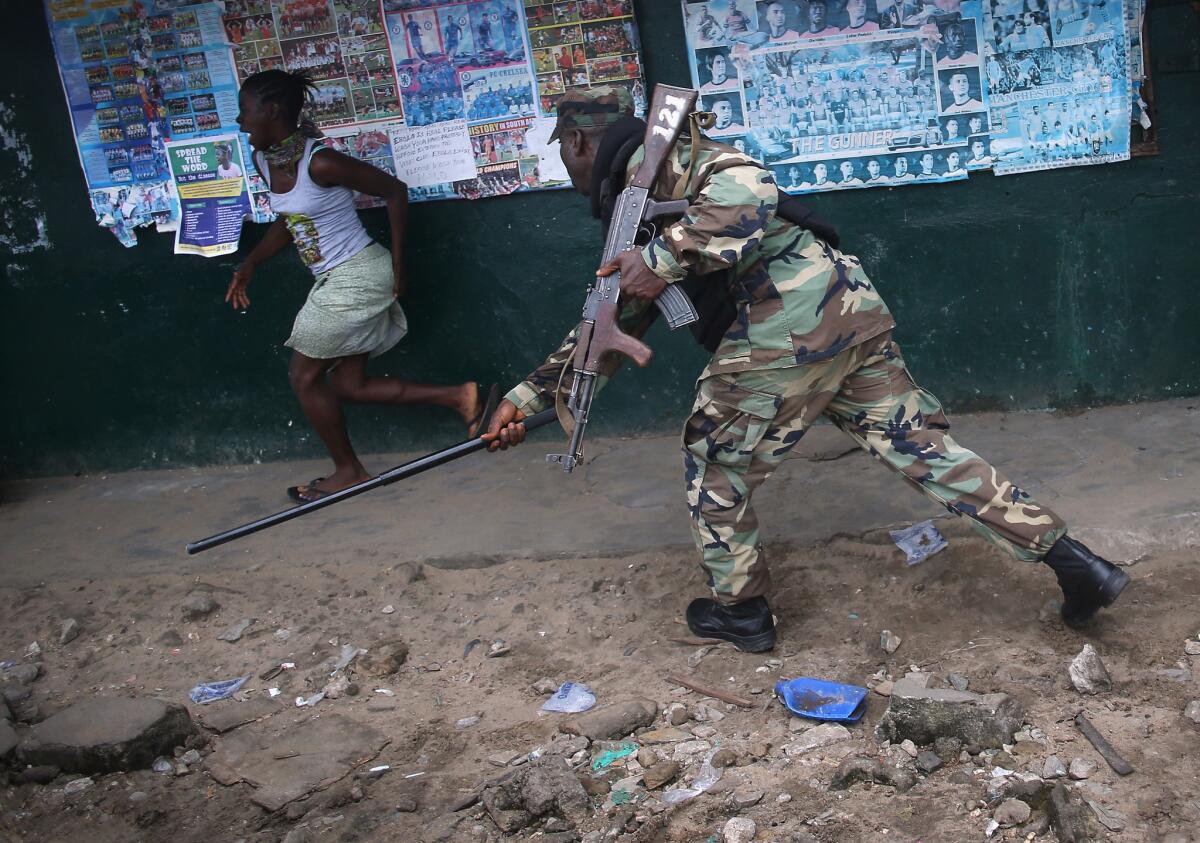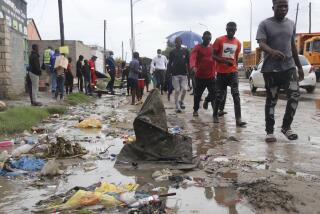Efforts to stop the spread of Ebola in Africa will take ‘many months’

International efforts to halt the spread of Ebola in West Africa will take many more months as crushing poverty, dysfunctional health systems and widespread fear continue to fuel the epidemic, according to world health officials.
In a series of perspective pieces published Wednesday in the New England Journal of Medicine, health experts said world governments and health organizations needed to prepare for a long and focused battle against the Ebola virus.
“Stopping the outbreak at the source in Africa will take many months,” wrote Dr. Thomas Frieden, director of the U.S. Centers for Disease Control and Prevention.
The current outbreak, which has killed at least 1,350 people, according to the World Health Organization, is the worst to occur since the virus was first identified in 1976.
The reason for this, according to Dr. Margaret Chan, director general of the WHO, is simple.
“The question can be answered with a single word,” she wrote. “Poverty.”
“The hardest-hit countries, Guinea, Liberia and Sierra Leone, are among the poorest in the world. They have only recently emerged from years of conflict and civil war that have left their health systems largely destroyed or severely disabled ... only one or two doctors are available for every 100,000 people, and these doctors are heavily concentrated in urban areas,” Chan wrote.
As Western nations debate using a small supply of experimental treatments for the Ebola virus, Chan wrote that the search for employment and fear have made it difficult to contain the spread at national borders, or to track and quarantine those who have been exposed to infection.
“The area where the borders of the three countries intersect is now the designated hot zone, where transmission is intense and people in the three countries continue to reinfect each other,” Chan wrote. “Recent decisions to quarantine this area have brought extreme hardship to more than a million people - but are essential for containment.”
Chan wrote that the medical response to the outbreak has now entered its sixth month, and fear has proved to be an immense challenge in managing public health.
“Fear causes people who have had contact with infected persons to escape from the surveillance system, relatives to hide symptomatic family members or take them to traditional healers, and patients to flee treatment centers,” Chan wrote.
The director of the United Nations health organization has recommended that medical anthropologists be included in medical response teams to help address long-standing cultural practices that have helped to spread Ebola. In Guinea, 60% of cases have been linked to traditional burials, Chan wrote.
It was also necessary to combat potentially deadly rumors.
“Rumors, whether about witchcraft or miracle cures, abound; at least two Nigerians have died after drinking saltwater, which was rumored to be protective.”
The international response to the crisis has begun to improve in the last couple weeks, but the situation is far from stable, Chan wrote.
“The world is seeing the outbreak’s multiple human tragedies: Abandoned rural villages and orphaned children, economic and social disruption in capital cities, extreme daily hardship in the quarantine zones, riots, uncollected bodies, and above all, the unprecedented number of medical staff who risked their lives and lost them,” Chan wrote.
To date, about 160 medical workers have been infected, and more than 80 have died, Chan wrote.
The CDC’s Frieden and colleagues wrote that improved hospital infection control throughout the region would prevent a “substantial number” of Ebola cases.
“The greatest risk of transmission is not from patients with diagnosed infection but from delayed detection and isolation,” Frieden and his colleagues wrote.
“Since the early symptoms of Ebola virus disease - fever, nausea, vomiting, diarrhea, and weakness - are nonspecific and common, patients may expose family caregivers, healthcare workers, and other patients before the infection is diagnosed.”
Follow @montemorin for science news







